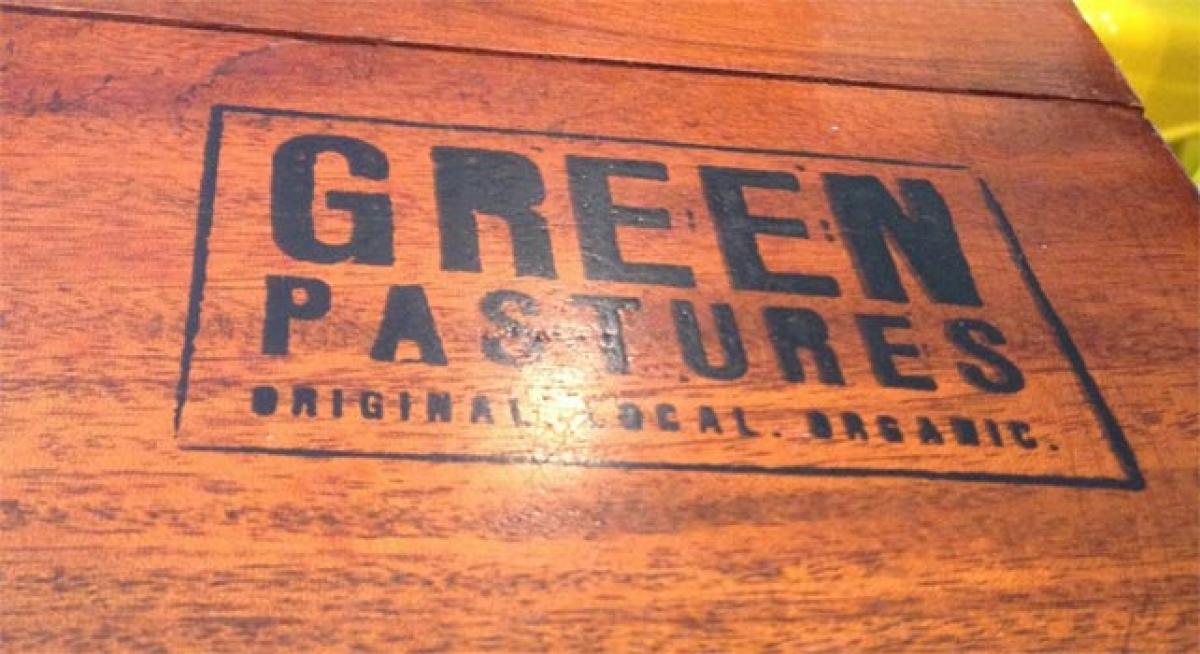Live
- Punjab DGP, MHA official request farmer leader Dallewal to end 20-day fast
- Govt unveils ‘Jalvahak’ to boost inland waterways
- List of criminals: Delhi BJP chief on AAP panel of 38 candidates
- PSBs in India clock record Rs 1.41 lakh crore in net profit in FY24
- Telangana Government Announces Key Development Plans: Bhatti Vikramarka
- Crackdown on illegal poppy farming in Manipur: Assam Rifles destroyed 6,228 acres in 5 years
- South Korea's ruling party leader cancels press conference amid calls for resignation
- AIADMK's big meet discusses 2026 polls, prospective alliances
- BJP questions Congress-Shiv Sena (UBT) alliance over Aaditya Thackeray's Savarkar-Nehru remark
- Maha Oppn to boycott customary CM tea meet, cites rising farmers' distress, atrocities against Dalits
Just In

With an innovative technique in traditional organic cultivation, this farmer became a role model to others in producing healthy yield in paddy cultivation.
Eluru: With an innovative technique in traditional organic cultivation, this farmer became a role model to others in producing healthy yield in paddy cultivation. Gadde Satish Babu has followed the footsteps of his ancestors in taking up organic farming at his farms in Sitampeta village in Denduluru mandal and Singarajupalem in Nallajerla Mandal.
He used the traditional method invented by his great-grandfather Gadde Raghavulu and followed by his father Gadde Subba Rao. This progressive farmer had an extent of 19 acres in Sitampeta village in Denduluru mandal and 40 acres in Singarajupalem village in Nallajerla mandal. In Sitampeta farm, Satish used to cultivate Paddy on 16 acres. In Singarajupalem lands, he is cultivating 16 acres of maize, four acres of black gram, 2 acres of green gram and 16 acres of coconut,
He and his ancestors including his father never used chemical fertilisers in their farm fields. His great grandfather has started the traditional organic cultivation during 1900 and those methods are being implemented till date. Due to utilization of chemical fertilisers in the farm fields, the soil strength has been weakening over the decades.
Talking to The Hans India, Satish Babu said, “to overcome this under-nutrition problem in the soil and the food grains as well, we follow the Indian traditional cyclic agriculture methods which sustains the adequate nutrition values, especially in the food crops. In our traditional agriculture system, cattle play an important role,” He stated that cattle are the main source for strengthening the soil. “The present methodology is a proven technology and inherited from my forefathers.
It is very simple and easy for us to adopt in most of the locations around the globe.” he stated adding that he never use any pesticides and artificial fertilisers throughout the year. “We follow the cyclic method in this agriculture process where we use to keep the cattle in the field throughout unseasonal time of respective crop, for them to excrete urine and dung directly in the field. Because of this, natural excreta the soil becomes fertile or highly nutritious for the upcoming crop.
Once the cropping starts till the harvesting, the cattle is placed another field where the same process is repeated to increase the soil fertility” he explains. As part of the organic farming, Satish Babu divided his land for three different crops - one for coconut, second for rice and third for maize. From November till May (unseasonal time of rice crop) the cattle placed on the rice field during nights are transferred to the coconut field. During June to the end of October (unseasonal time of maize) the cattle on the maize field are transferred to the coconut field.
Here the coconut field is continuously getting fertile with the presence of cattle and during standing rice and maize crops periods. The farmer used to change the cattle’s place every day to create new environment for cattle to stay comfortably. Likewise, the entire agriculture land was covered with cattle urine and dung. Because of the natural excreta, the soil maintains the required moisture for better crop. He said that the cow dung and cow-urine kills the weed that otherwise grows naturally the paddy fields in the Chemical fertiliser used lands. The GSR Method has proved to be very productive for Satish Babu.
“In our experience, within one to two months, the soil will be nutritious for better crop. First three months we will concentrate on the soil fertility. Once the soil is adequate with nutrients, we sow the seeds of paddy / maize based on the season of the respective crop. During initial stages, there will be no any biennial crop (like coconut field), we place the cattle in a shed during day time” he says.
“Scientists and farmers of different countries have appreciated my ancestors traditional method in which cattle will be tied with a rope in a row and changing over it day by day” he said. Satish Babu has received appreciation at UNESCO sponsored Academic and research international seminar for his innovative methods in farming.
By G Ramachandra Sharma

© 2024 Hyderabad Media House Limited/The Hans India. All rights reserved. Powered by hocalwire.com







